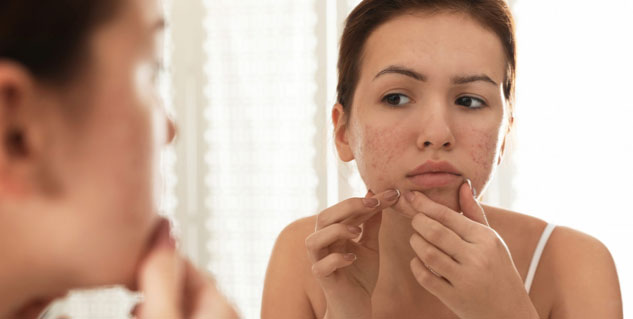Introduction
Welcome to a comprehensive exploration of the intricate relationship between stress and skin health. In this enlightening article, we delve deep into the profound impact that stress can exert on our skin, backed by expert insights and scientific research. From understanding the physiological mechanisms at play to practical tips for managing stress-induced skin conditions, this article aims to empower you with valuable knowledge and actionable advice.
Unveiling the Hidden Link
Stress and skin health: an unexpected connection? Contrary to popular belief, the mind-body connection extends far beyond mental well-being. Unlocking the Stress-Skin Connection: Expert Insights reveal how stress can manifest visibly on our skin, affecting its appearance and overall health. From exacerbating existing skin conditions to triggering inflammatory responses, stress can wreak havoc on our skin in multifaceted ways.
The Physiology Behind the Connection
To comprehend the profound impact of stress on the skin, it’s essential to grasp the underlying physiological mechanisms. Stress triggers the release of cortisol, often referred to as the “stress hormone,” which can disrupt the delicate balance of hormones in the body. This hormonal imbalance can, in turn, lead to various skin issues, including acne, eczema, and psoriasis. Moreover, heightened stress levels impair the skin’s natural barrier function, making it more susceptible to environmental aggressors and infections.
Recognizing the Signs
How do you know if stress is taking a toll on your skin? Unlocking the Stress-Skin Connection: Expert Insights highlight key indicators to watch out for, such as sudden breakouts, increased sensitivity, and prolonged inflammation. By paying attention to these signs, you can proactively address underlying stressors and mitigate their impact on your skin health.
Strategies for Stress Management
While stress may seem inevitable in today’s fast-paced world, there are proactive steps you can take to safeguard your skin against its adverse effects. Here are some expert-recommended strategies for effective stress management:
1. Prioritize Self-Care
Incorporate relaxation techniques such as meditation, yoga, or deep breathing exercises into your daily routine to promote overall well-being and reduce stress levels.
2. Maintain a Healthy Lifestyle
Nourish your body with a balanced diet rich in vitamins, minerals, and antioxidants, and prioritize regular exercise to support both physical and mental health.
3. Establish Boundaries
Learn to say no to excessive commitments and prioritize activities that bring you joy and fulfillment. Setting boundaries is crucial for maintaining emotional equilibrium and reducing stress.
4. Cultivate a Supportive Network
Seek out social connections and surround yourself with supportive friends and family members who can provide comfort, encouragement, and perspective during challenging times.
5. Seek Professional Help
Don’t hesitate to consult a mental health professional if stress becomes overwhelming or begins to interfere significantly with your daily life. Therapy, counseling, or medication may be beneficial in managing stress-related symptoms.
Unlocking the Stress-Skin Connection: Expert Insights
Drawing upon years of clinical experience and research findings, experts have uncovered valuable insights into the intricate interplay between stress and skin health. By understanding the underlying mechanisms and implementing effective stress management strategies, individuals can reclaim control over their skin health and overall well-being.
FAQs
- Is stress always bad for the skin? Stress isn’t inherently detrimental to the skin; it’s how we respond to stress that matters. While acute stress responses are natural and even beneficial in certain situations, chronic stress can have adverse effects on skin health.
- Can stress cause permanent damage to the skin? While stress can exacerbate existing skin conditions and accelerate the aging process, it’s usually reversible with appropriate interventions. However, chronic stress can lead to long-term skin damage if left unaddressed.
- What role does diet play in managing stress-related skin issues? A balanced diet rich in fruits, vegetables, lean proteins, and healthy fats can support skin health and resilience. Certain nutrients, such as vitamin C, zinc, and omega-3 fatty acids, have been shown to mitigate the effects of stress on the skin.
- How long does it take to see improvements in skin health after implementing stress management strategies? The timeline for seeing improvements in skin health varies depending on individual factors such as genetics, lifestyle habits, and the severity of stress-related symptoms. Consistency and patience are key when implementing stress management strategies.
- Can skincare products alone alleviate stress-related skin issues? While skincare products can help improve the appearance of the skin and alleviate certain symptoms, they are not a substitute for addressing the underlying causes of stress. A holistic approach that incorporates stress management techniques is essential for long-term skin health.
- Are there any natural remedies for reducing stress and promoting skin health? Several natural remedies, including herbal supplements, aromatherapy, and relaxation techniques, have been shown to reduce stress levels and support skin health. However, it’s essential to consult with a healthcare professional before incorporating any new treatments into your regimen.
Conclusion
In conclusion, Unlocking the Stress-Skin Connection: Expert Insights shed light on the intricate relationship between stress and skin health, emphasizing the importance of proactive stress management in preserving skin integrity and overall well-being. By adopting holistic approaches that address both the physical and emotional aspects of stress, individuals can achieve radiant, resilient skin that reflects inner vitality and balance.




